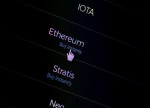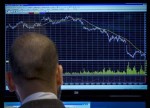
- All Instrument Types
- Indices
- Equities
- ETFs
- Funds
- Commodities
- Currencies
- Crypto
- Bonds
- Certificates
Please try another search

GLOBAL MARKETS-Oil falls on OPEC, euro slips on debt worries

* OPEC mulls boosting production for 1st time in 2 years
* Euro slips for 2nd day on euro zone debt concerns
* Greek 10-year yields hit euro-era high
* U.S. stocks rise on oil price relief (Updates with US markets open; changes byline, dateline, previous LONDON)
By Walter Brandimarte
NEW YORK, March 8 (Reuters) - Oil prices fell on Tuesday as OPEC considered boosting production for the first time in more than two years, while the euro slipped for the second day on renewed euro zone debt worries.
U.S. stocks rose as investors greeted the fall in oil prices with relief, but a drop in base metals, such as copper, drove shares of miners lower, weighing on European equity markets.
The recovery in stocks appeared tentative as investors feared that unrest in Libya and the Middle East could still drive oil prices up, one day after they hit a 2-1/2-year high.
An official oil output increase by the Organization of the Petroleum Exporting Countries would signal the group's determination to cap prices, but continued violence in Libya left investors jittery.
OPEC oil producers are consulting about a supply boost, Kuwait's oil minister said, but many in the group remain skeptical. [ID:nLDE7270Q8]
"At the moment, I think we just remain nervous -- the situation in the Middle East is still fluid," said Frank Lesh, a futures analyst and broker at FuturePath Trading LLC in Chicago. "We'd like to see a little more clarity there, and we certainly don't have that."
Brent crude
The three major U.S. stock indexes traded higher after starting the session flat.
The Dow Jones industrial average <.DJI> was up 64.56 points, or 0.53 percent, at 12,154.59, while the Standard & Poor's 500 Index <.SPX> rose 6.54 points, or 0.50 percent, at 1,316.67. The Nasdaq Composite Index <.IXIC> gained 12.61 points, or 0.46 percent, at 2,758.24.
In Europe, the FTSEurofirst 300 <.FTEU3> index of top shares was little changed at 1,144.47 points, after seesawing between positive and negative.
GREEK YIELDS AT RECORD HIGH
The euro fell against the dollar as concerns about the debt situation of peripheral euro zone countries outweighed expectations of an interest rate hike by the European Central Bank next month.
Concerns about Europe's debt problems have been on the rise since Moody's cut Greece's credit ratings by three notches on Monday, signaling that more downgrades are on the way.
Greece's borrowing costs spiked on Tuesday, with yields
paid by 10-year government bonds
The euro
"The problem with the interest rate driven trade and Trichet's hawkish comments is that you have to see the other issues behind it," said John McCarthy, director of foreign exchange at ING Capital Markets in New York. "Higher rates will be devastating on the peripheral countries." (Additional reporting by Chuck Mikolajczak, Nick Olivari, Brenda Goh and William James; Editing by Padraic Cassidy)
Related Articles
Are you sure you want to block %USER_NAME%?
By doing so, you and %USER_NAME% will not be able to see any of each other's Investing.com's posts.
%USER_NAME% was successfully added to your Block List
Since you’ve just unblocked this person, you must wait 48 hours before renewing the block.
I feel that this comment is:
Thank You!
Your report has been sent to our moderators for review






Add a Comment
We encourage you to use comments to engage with other users, share your perspective and ask questions of authors and each other. However, in order to maintain the high level of discourse we’ve all come to value and expect, please keep the following criteria in mind:
Enrich the conversation, don’t trash it.
Stay focused and on track. Only post material that’s relevant to the topic being discussed.
Be respectful. Even negative opinions can be framed positively and diplomatically. Avoid profanity, slander or personal attacks directed at an author or another user. Racism, sexism and other forms of discrimination will not be tolerated.
Perpetrators of spam or abuse will be deleted from the site and prohibited from future registration at Investing.com’s discretion.